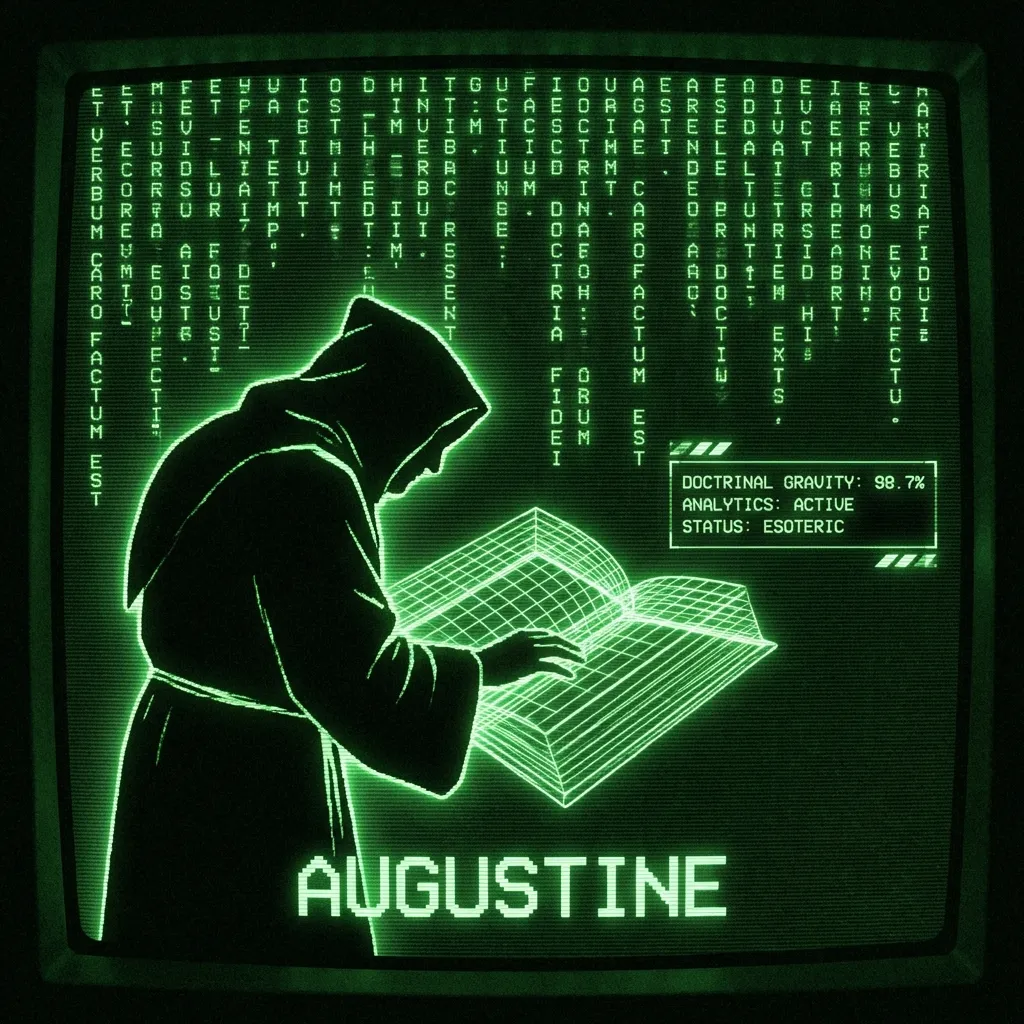TL;DR
- We ranked 15 non-Gospel Christian heavyweights by raw cultural gravity—doctrinal impact, global reach, and memetic staying-power.
- Augustine still lords it over everyone (sorry Tommy).
- Aquinas is the grand architect, but Luther’s nuke-level disruption rockets him past.
- Eastern titans (Athanasius, Cappadocians) punch above their Western name-ID.
- Moderns? C.S. Lewis sneaks into the Top 10 by sheer pop-omnivorousness.
- Yes, your fave got snubbed—fight me in the footnotes.
How We Built This Smackdown#
Choosing between sainted mystics and academic juggernauts is… a vibe. Still, we forced method into mayhem.
The Triple‑Threat Score#
- Doctrinal Gravity (40 %) – Did they change core dogma or ratify it for centuries?
- Reach (35 %) – Languages translated, communions touched, memes spawned.
- Longevity (25 %) – Are people still quoting them unironically?
Each writer got a 1‑10 in every category; multiply, sum, cry.
The Leaderboard, Uncensored#
| Rank | Writer | Doctrinal Gravity | Reach | Longevity | Why It Matters (One‑Liner) |
|---|---|---|---|---|---|
| 1 | Augustine of Hippo | 10 | 9 | 10 | Invented original-sin meta, rebooted Western moral psychology. |
| 2 | Martin Luther | 9 | 10 | 9 | Lit the fuse that blew up Western Christendom. |
| 3 | Thomas Aquinas | 9 | 8 | 9 | System-built the Catholic mind palace in Aristotelian steel. |
| 4 | Athanasius | 8 | 7 | 9 | Solo-tank vs. Arianism; wrote On the Incarnation. |
| 5 | John Calvin | 8 | 8 | 8 | Double-predestination’s PR chief; Geneva’s book-nerd tyrant. |
| 6 | Gregory Nazianzen | 7 | 6 | 8 | Trinitarian poetry that still sings in liturgy. |
| 7 | Origen (kinda) | 8 | 6 | 7 | Allegory king; borderline-heretic, maximal influence. |
| 8 | Jerome | 6 | 8 | 8 | Dropped the Vulgate mic. |
| 9 | John Chrysostom | 6 | 6 | 9 | The liturgy bears his name—enough said. |
| 10 | C.S. Lewis | 5 | 10 | 7 | Turned Oxford don chat into global apologetics fandom. |
| 11 | Anselm of Canterbury | 7 | 5 | 7 | Satisfaction atonement + ontological argument flex. |
| 12 | Jonathan Edwards | 6 | 7 | 6 | America’s fire-and-logic revivalist brain. |
| 13 | Teresa of Ávila | 5 | 6 | 8 | Mysticism + reform = Doctor of the Church. |
| 14 | Dietrich Bonhoeffer | 5 | 6 | 7 | Cheap grace? He obliterated the concept. |
| 15 | Ignatius of Antioch | 6 | 5 | 6 | Early episcopal authority booster—martyr tweets from 110 CE. |
Deep Dives on the Titans
1. Augustine: The Original Doomscroller of the Soul#
Confessions? More like the first literary self‑drag in Western lit. He weaponized Neoplatonism, baked in Pauline angst, and handed the world a blueprint for guilt that still sells therapy sessions.
“Lord, make me chaste—but not yet.”
The most meme‑able thirst‑trap prayer ever.
2. Luther: Punk Rock Monk With a Printing Press#
A man so extra he stapled his substack to a church door. Translating Scripture into German lit‑fire, he sold Bibles like mixtapes and dragged half of Europe into justification by faith.
3. Aquinas: The Angelic Doctor, Straight‑faced Savage#
Aquinas didn’t just quote Aristotle—he domesticated him. Summa Theologica reads like if StackOverflow answered every metaphysical Reddit post in existence.
FAQ#
Q 1. Why isn’t the Apostle Paul on this list? A. We deliberately excluded Gospel authors and Paul because otherwise he’d Hoover up the #1 slot and make the ranking pointless.
Q 2. Isn’t Lewis more a novelist than a theologian? A. Yes, and that’s the point: Mere Christianity plus Narnia moved more modern minds than some doctors of the Church—reach matters.
Q 3. How did you score “Doctrinal Gravity”? A. We tallied major councils citing the author, direct doctrinal adoptions, and how many later heavyweights treat them as axiomatic.
Q 4. Where are the Eastern Orthodox moderns? A. Influence outside scholarly circles stayed too niche to crack Top 15, but Bulgakov was close.
Footnotes#
Sources#
- Augustine of Hippo. City of God. Penguin Classics, 2003.
- Oberman, Heiko. Luther: Man Between God and the Devil. Yale University Press, 2006.
- Davies, Brian. The Thought of Thomas Aquinas. Clarendon, 1992.
- Anatolios, Khaled. Athanasius. Routledge, 2004.
- McGrath, Alister. Christian Theology: An Introduction. Wiley-Blackwell, 2020.
- Pelikan, Jaroslav. The Christian Tradition, Vols. 1-5. University of Chicago Press, 1971-1989.
- Calvin, John. Institutes of the Christian Religion. Westminster John Knox, 1960.
- Lewis, C. S. Mere Christianity. HarperOne, 2001.
- Edwards, Jonathan. Religious Affections. Yale Works of Jonathan Edwards, 2009.
- Bonhoeffer, Dietrich. The Cost of Discipleship. SCM Press, 1959.
